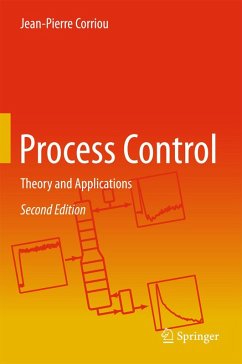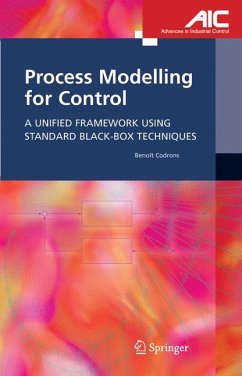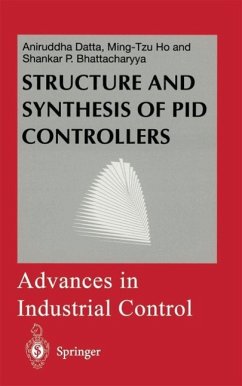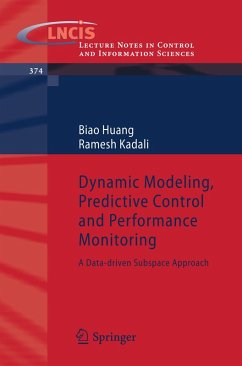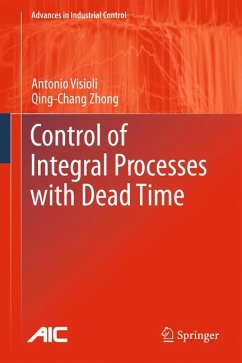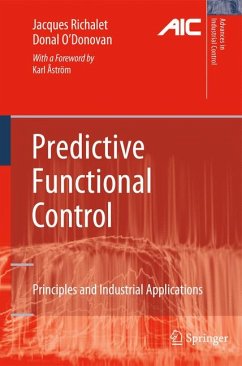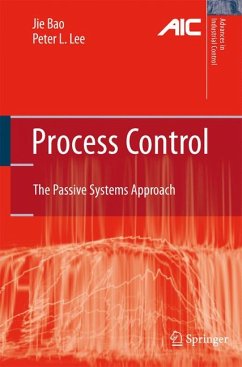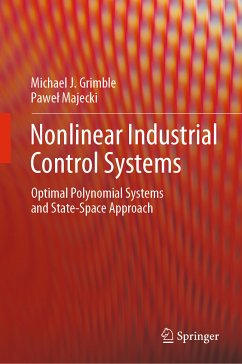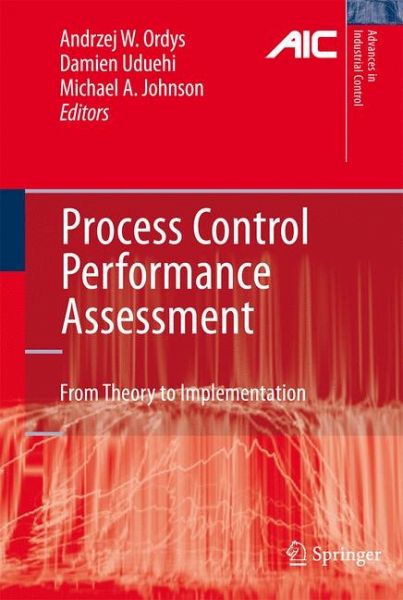
Process Control Performance Assessment (eBook, PDF)
From Theory to Implementation
Redaktion: Ordys, Andrzej; Johnson, Michael A; Uduehi, Damien
Versandkostenfrei!
Sofort per Download lieferbar
112,95 €
inkl. MwSt.
Weitere Ausgaben:

PAYBACK Punkte
56 °P sammeln!
"Process Control Performance Assessment" is a guide to the application of control benchmarking to industrial processes. It presents commercial solutions and techniques still under development and contains real industrial case studies from the oil and gas, power and chemical industries. The effect of benchmarking and control tuning on process performance and revenue optimisation is demonstrated.Practical issues to do with implementing benchmarking algorithms in industrial processes are covered in detail and guidelines for avoiding common problems given. The impact of problems like valve stictio...
"Process Control Performance Assessment" is a guide to the application of control benchmarking to industrial processes. It presents commercial solutions and techniques still under development and contains real industrial case studies from the oil and gas, power and chemical industries. The effect of benchmarking and control tuning on process performance and revenue optimisation is demonstrated.
Practical issues to do with implementing benchmarking algorithms in industrial processes are covered in detail and guidelines for avoiding common problems given. The impact of problems like valve stiction and plant-wide disturbances on process performance is reviewed and methods for diagnosing causative fault conditions suggested.
The benefits of using benchmarking techniques for optimising control systems are increased throughput and product quality. The book is appropriate for industrial and academic control and process engineers wishing to learn about methods of benchmarking through directed study or self study.
Practical issues to do with implementing benchmarking algorithms in industrial processes are covered in detail and guidelines for avoiding common problems given. The impact of problems like valve stiction and plant-wide disturbances on process performance is reviewed and methods for diagnosing causative fault conditions suggested.
The benefits of using benchmarking techniques for optimising control systems are increased throughput and product quality. The book is appropriate for industrial and academic control and process engineers wishing to learn about methods of benchmarking through directed study or self study.
Dieser Download kann aus rechtlichen Gründen nur mit Rechnungsadresse in A, B, BG, CY, CZ, D, DK, EW, E, FIN, F, GR, HR, H, IRL, I, LT, L, LR, M, NL, PL, P, R, S, SLO, SK ausgeliefert werden.




